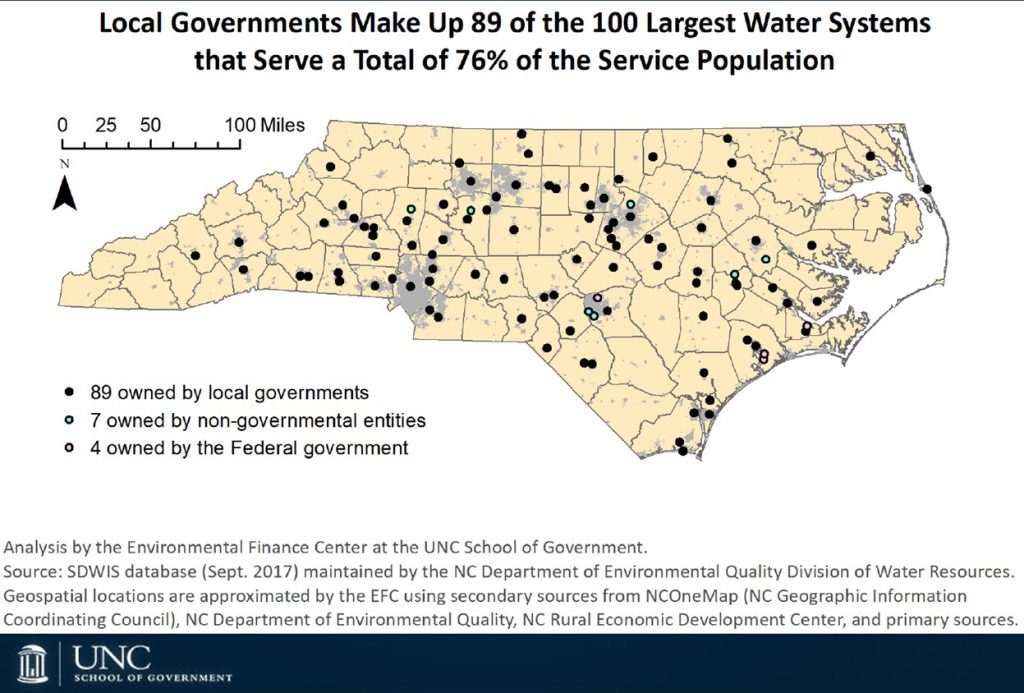Helping Local Governments Respond to Drinking Water Incidents
The Drinking Water Working Group is a committee of 22 water quality, public health, and local government professionals convened to develop a guide for North Carolina local governments to respond in the event of a drinking water incident.

The UNC Institute for the Environment recently featured the Drinking Water Working Group, which is coordinated by the ncIMPACT Initiative with support from a grant provided by the NC Policy Collaboratory. Read more from faculty lead Jill Moore at:
The Drinking Water Working Group is a committee of 22 water quality, public health, and local government professionals convened to develop a guide for North Carolina local governments to respond in the event of a drinking water incident. Drinking water incidents such as floods, infrastructure failures, or contaminations may create real or perceived threats to the safety of drinking water across North Carolina. The purpose of the Drinking Water Working Group is to compile a toolkit of resources to assist local governments when they must respond to such incidents.
The drinking water response toolkit will be prepared and shared on an informative website (as well as in printable format) in June 2019. Proposed toolkit items include:
- Materials for a local pre-incident planning meeting,
- Worksheets for assembling local information about persons to contact in an incident,
- Sample local documents, such as mutual aid agreements,
- Links to communication tools, such as drinking water advisories, and
- NC-specific resources, such as directories of relevant agencies
- For more information, contact:
Emily Williamson Gangi, Engagement Director, ncIMPACT Initiative, emily.gangi@unc.edu

